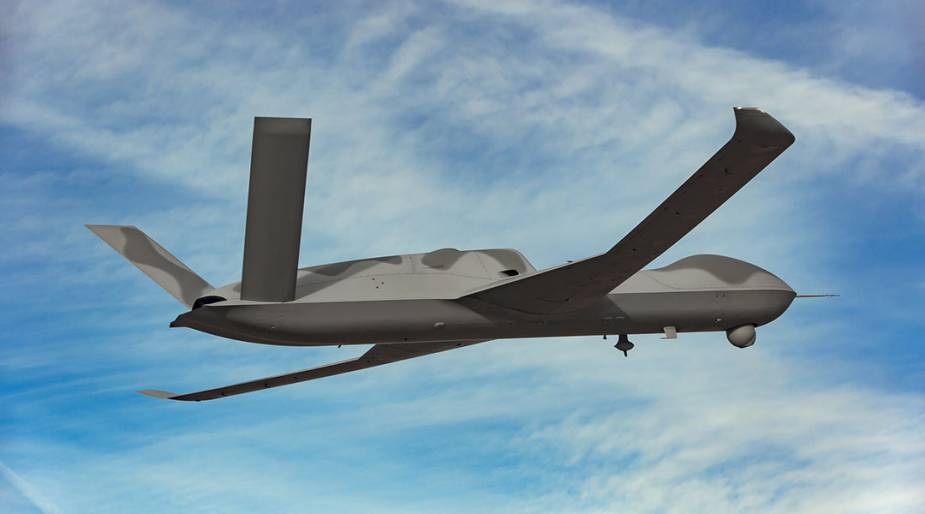Breaking news
GA-ASI demonstrates government-supplied CODE autonomy engine.
General Atomics Aeronautical Systems annouced on December 4 on its website that it conducted an autonomous flight using a government-supplied Collaborative Operations in Denied Environment (CODE) autonomy engine to support air-to-air targeting missions. The CODE autonomy engine was installed on a GA-ASI Avenger Unmanned Aircraft System (UAS).
Follow Air Recognition on Google News at this link

Autonomous flight uses jet-powered Avenger as Skyborg Surrogate (Illustration source: GA-ASI)
The CODE autonomy engine was implemented to further understand cognitive Artificial Intelligence (AI) processing on larger UAS platforms, such as Avenger. Using a network- enabled Tactical Targeting Network Technology (TTNT) radio for mesh network mission communications, GA-ASI was able to show integration of emerging Advanced Tactical Data Links (ATDL) and separation between flight and mission critical systems.
“This represents a big step on the path to more sophisticated autonomous missions for unmanned aircraft where operator input can be minimized to support optimal manning of multiple products for complex air battles,” said GA-ASI President David R. Alexander. “For this initial flight, we used Avenger as the flight surrogate for the Skyborg capability set, which is a key focus for GA-ASI emerging air-to-air portfolio.”
As part of the autonomous flight, the CODE autonomy software controlled the maneuvering of the Avenger UAS for over two hours without traditional pilot input. GA-ASI furthered the development of the CODE software by adding behavioral functions for a coordinated air-to-air search with up to six aircraft (for the demonstration, five of the aircraft were virtual). The CODE operator, using a small form factor commercial computer running the government-provided software, set mission objectives for the flight in which the autonomy software was used to coordinate the six aircraft to accomplish the air-to-air search objective.
GA-ASI created ground and air adapter services that passed operator mission inputs to the flying constellation of aircraft using Link 16-formatted messages that followed Joint Range Extension Applications Protocol (JREAP). The open architecture of the CODE software enables communications between the aircraft, the CODE software and the autopilot.

























